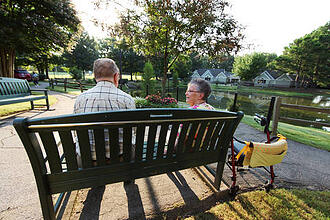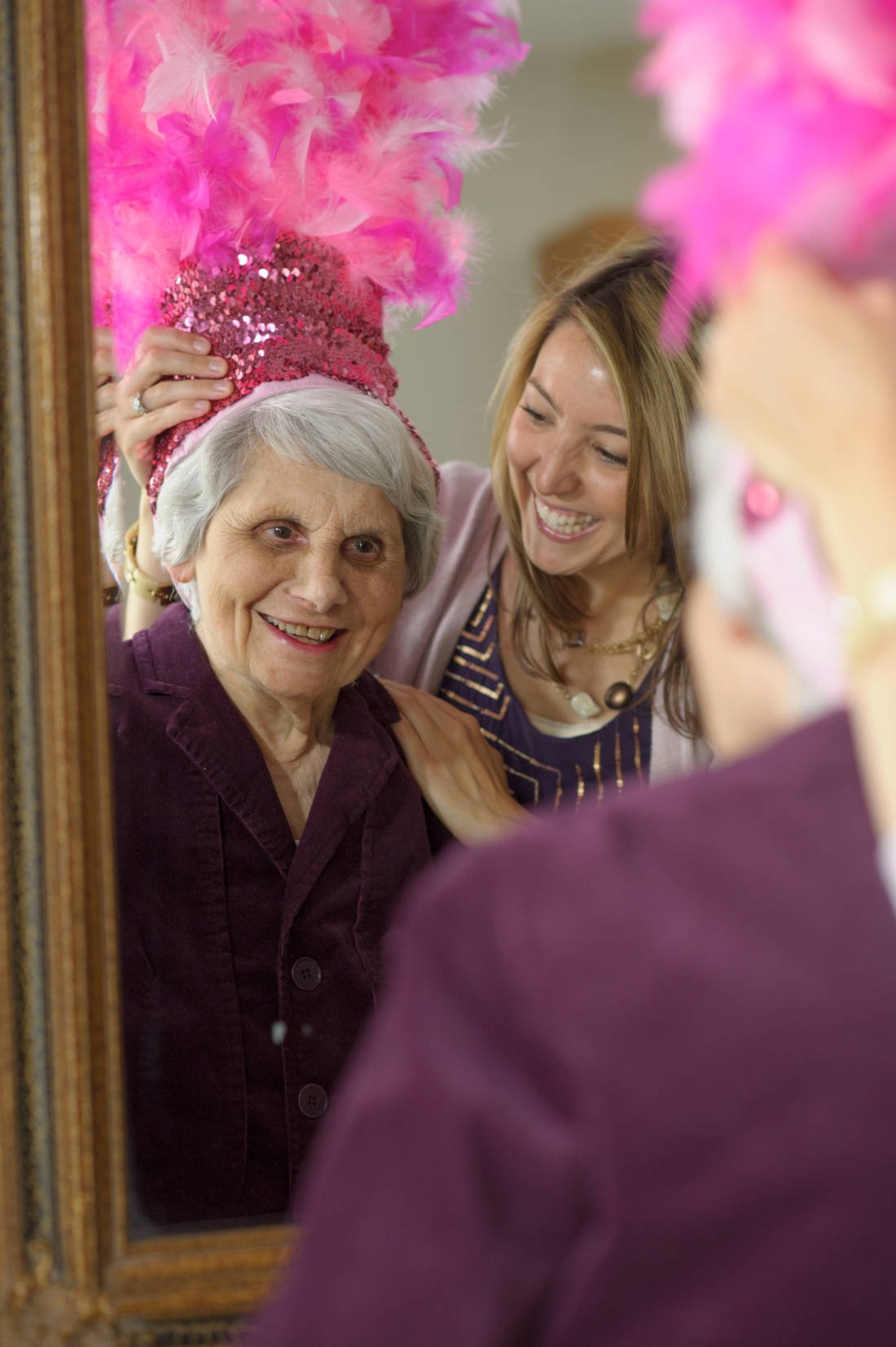Tips for Helping Your Aging Loved One Enjoy the Warm Weather
assisted living | Aging & Caregiving
 Ah…..summer. While cookouts and carefree days at the beach may come to mind at this time of year, it’s not all fun and games.
Ah…..summer. While cookouts and carefree days at the beach may come to mind at this time of year, it’s not all fun and games.
Extreme temperatures can lead to life-threatening complications -- particularly for older Americans. Read on to learn how to keep your aging loved one safe and comfortable during warm weather.
Heat’s Effect on the Elderly
Sweating is the body’s primary means of staying cool and preventing overheating. However, the body’s ability to regulate temperature through perspiration decreases with age. Not only that, but older, thinner skin is also more vulnerable to the effects of the sun. Factor in heart, lung and kidney disease, poor circulation, and high blood pressure, and the risk of heat-related complications increases for the elderly.
Additionally, some medications may interfere with the body’s ability to deal with heat. These include:
- Antipsychotic drugs
- Anticholinergic drugs
- Sedatives (including OTC sleeping pills)
- Tranquilizers
- Diuretics
- Amphetamines
- Antihistamines
- Some blood pressure drugs
- Some antidepressants
It is important to consult with your loved one’s primary care physician to determine whether any medications may be putting him or her at further risk of a heat-related emergency.
Lastly, if your loved one is cognitively impaired, it is important to remember that he or she may not be able to effectively process or communicate heat-related distress.
Signs and Symptoms of Overheating
Knowing the signs can help you quickly respond to heat-related dangers. Signs of conditions ranging from heat stress to heat exhaustion include nausea, weakened pulse, faintness, muscle spasms, thirst, dizziness, weakness, lack of coordination, profuse sweating, clammy skin, urination and vomiting.
Life-threatening heat stroke, meanwhile, requires immediate attention. Look for body temperatures over 100 degrees Fahrenheit, along with feelings of confusion, combativeness or faintness. A rapid pulse, dry skin, shallow breathing, dilated pupils and delirium, seizures or convulsions may also indicate heat stroke. If your loved one experiences these symptoms, seek medical help immediately.
What You Can Do
It’s possible to help your aging loved one stay cool and comfortable during extreme temperatures through a few simple measures.
Keeping your loved one’s living environment cool is a simple first step. Set air conditioning to 80 degrees F or below, if possible. If he or she doesn't have central air, invest in a window air conditioning unit or cool their living space with fans, keeping windows open at night and closed during the day.
Help your loved one stay out of direct sun -- particularly during the intense hours between 11 a.m. and 4 p.m. If it is essential to be out and about, park as close as possible to your destination, and avoid leaving your loved one inside a hot car. Additionally, keep an eye on alerts about air pollution and humidity levels, both of which can increase discomfort.
Help your loved one choose lightweight, light-colored clothing that fits loosely. Natural fabrics like cotton are particularly comfortable. Wearing a hat can help protect their face and head from dangerous UV rays. And don’t forget sunscreen! Spray sunscreen is easier to apply than traditional lotions and can protect your loved one’s skin if he or she is going to be spending time outside. If your loved one enjoys spending time outside in the warmer weather, find a comfortable spot in the shade or bring along an umbrella to shield the sun. However, it is often wise to limit or completely restrict physical activity during times of extreme heat; your love one’s physician can help you determine when exercise is more dangerous than beneficial.
Other ways to help protect your loved one during extreme heat? Stress the importance of drinking plenty of water, eating light meals, and taking cooling showers or baths. Dehydration can affect older adults more quickly and more frequently than others, especially if they don’t typically drink enough fluids. Encourage your loved one to avoid caffeinated beverages and drink throughout the day. Staying hydrated can not only prevent heat-related illness, but can also prevent urinary tract infections, a common occurrence for some older seniors.
Every year, more people die from heat-related illnesses than hurricanes, tornadoes, flood, earthquakes and lightening combined. By understanding the risks and symptoms, and by remaining vigilant, you can help your loved one stay cool when the weather turns hot.
Key Takeaways
- A variety of factors make aging Americans particularly susceptible to heat-related issues.
- Caregivers can take a number of different precautions to help loved ones stay safe and comfortable during hot weather.
- Knowing the signs and symptoms of heat-related distress is an important preventative measure.
- Caregivers should check in with their loved ones and also be vigilant -- particularly when caring for the cognitively impaired who may not be able to express when they’re feeling hot or ill.
About Marissa Salvesen
My journey into the world of senior living began when I started working for United Methodist Homes in 2010. Starting as an Activities Director at one of our-winning assisted and independent living communities and then transitioning to Marketing and Promotions Manager for UMH, I now work as the Manager of Mission Development, fostering the Mission and Values of our organization. I love sharing stories about the many ways we build meaningful relationships and enrich the lives of those we serve, and am proud to be part of building UMH’s 140-year legacy of caring. Wondering what makes our communities such special places to live and work? Connect with me and find out!

Our Blog is a 2016 Platinum Generations Award Winner! The Generations Award is an annual international competition for excellence in senior marketing recognizing professionals who have communicated to the 50+ Mature Markets.




